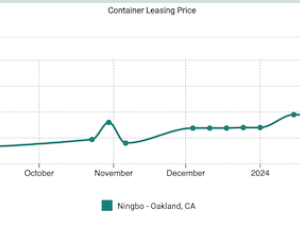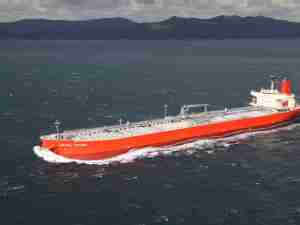"It's still very volatile at the moment. I still think there is more downside before a late Q3 uptick," Henriette van Niekerk, director with Clarksons, told Reuters.
Van Niekerk said while seaborne trade would pick up in the third quarter, helped by better Chinese coal import demand and the start of the U.S. grains season, the overall downward trend would last "very definitely into 2011".
"The total dry bulk year-on-year demand growth potential is not matching the year-on-year expected fleet growth," she said in an interview.
Clarksons estimated dry bulk net fleet growth this year around 17 percent versus 10 percent in 2009.
"In order to fill up all those ships, a much more bullish economic outlook is required. Unless that can be obtained, which does not look possible at this point in time, freight rates will be under pressure," van Niekerk said.
Freight Volumes
The dry bulk freight market has rebounded from record low levels seen in late 2008 due to economic turmoil which saw average earnings for the larger capesize vessels plummet to just over $2,000 a day, Baltic Exchange data showed. Average capesize earnings reached $24,237 a day on Tuesday.
Van Niekerk estimated average 2010 earnings for capesizes, which typically haul 150,000-tonne cargoes such as iron ore and coal, falling to $35,000 a day from $41,000 last year. She added that 2011 "will be weaker than that".
"I am optimistic about world seaborne trade growth but not to the extent that it can mitigate the dry bulk fleet growth over the next three years especially when the world is facing an economic downturn," she said.
Analysts expect Asian related trade to continue to dominate freight activity going forward.
"As most of the growth is expected in the East, we can expect a more active trade in the Pacific than in the Atlantic -- that could lead to short-term shortage of ships in the Atlantic that leads to freight volatility," van Niekerk said.
Freight players have been watching for signs of overheating in China's property market which would be negative for dry bulk.
"It is a real concern in the freight market because if you have a collapse in the construction industry surely that will affect steel production and as a result demand for raw materials," van Niekerk said.
Guy Campbell, managing director of Clarkson's dry cargo division, told Reuters lower freight rates did not limit trade.
"There are more ships but there is more trade and more business to be done. From a broker and trading perspective, it is still an exciting market to be in," he said.
Campbell said they did not believe the dry freight market would get back down to the historic lows seen in 2008.
"Unless you see destruction in demand, as we saw in the fourth quarter of 2008, the market will still be liquid." (Reuters)









